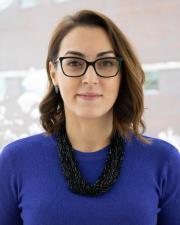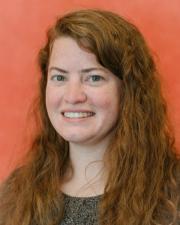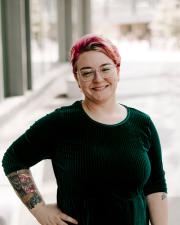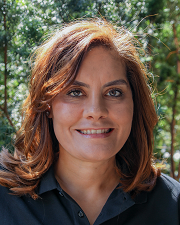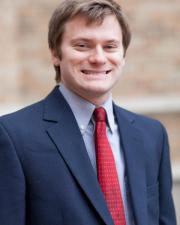
Added Value Opportunities
Students in Research
Students have the opportunity to get involved with research projects at the School of Social Welfare.
As a School within a comprehensive, premier research university, we value research and encourage students at all levels to take advantage of the opportunities to be a part of the research process.
Find out how you can get involved on the Students in Research webpage.
Study Abroad
The School offers faculty-led study abroad programs focusing on global social work.
Study abroad locations are not guaranteed to run every year. Check the Study Abroad & Global Engagement (SAGE) website for the most updated program listings.
International Social Work: A Costa Rican Perspective
During the two-week International Social Services: A Costa Rican Perspective study abroad program, students gain perspective on social services and broader social problems in Costa Rica.
Program highlights:
- Attend lectures and site visits to social service agencies to learn more about social services in Costa Rica
- Exchange perspectives on practice with Costa Rican social work students and faculty
- Travel to significant cultural and historical sites around San Jose
International Social Work: An Italian Perspective
This 12-day program offers students the opportunity to gain an international perspective on social work through lectures, field trips to social service agencies, and presentations by social work faculty from the Università Cattolica del Sacro Cuore.
The program will focus on the political, economic, and historical context of Italy as it impacts social work education and the delivery of social services. Students will visit social service agencies that address mental health, social work with children and families, public health, government and community-based social work practice, aging, and immigration issues. In addition to daily seminars and site visits, students will have the opportunity to travel to significant cultural and historical sites in Milan, Florence and the Lake Como region.
Student Groups & Organizations
Student groups offer opportunities to connect and build community with classmates.
BSW Student Group
The BSW Student Group plans both in-person and virtual community-building events for undergraduate students majoring in social work at KU.
To find out more, contact BSW Program Director Juliana Carlson.
Social Work Doctoral Student Organization
The Social Work Doctoral Student Organization provides forums for student discussions and invited presentations related to expressed student interests. In addition, the Doctoral Student Organization may voice students’ concerns and suggestions and recommend topics for discussion to the student representatives on the PhD Program Committee, the program director, and the dean. The student members of the Ph.D. Program Curriculum Committee are responsible for liaising with the Doctoral Student Organization year to year.
To find out more information about the Doctoral Student Organization, contact the PhD program director.
Professional Development & Scholars Programs
The School of Social Welfare offers professional development and additional training through Pathways to the Profession and scholars programs.
Pathways to the Profession is an event series that provides learning opportunities throughout the year for all levels of social work students. The series includes workshops, professional development, employment prep, and graduate school prep.
Students can find upcoming Pathways to the Profession events in the School of Social Welfare Announcements, News & Updates course in Canvas.
Have trouble accessing the Canvas course? Contact Kristin Trendel, assistant dean: katrendel@ku.edu.
Through financial support, mentoring, leadership and professional development opportunities, the Toni Johnson Scholars Program aims to enhance community, retention, and success for program scholars.
The Toni Johnson Scholars Program provides three programs for BSW, MSW, and PhD students in the KU School of Social Welfare.
To learn more, visit the Toni Johnson Scholars Program webpage.
The Sigler Family Aging Scholars Program aims to develop the next generation of leaders in the field of gerontological social work by offering an innovative, individualized, and community engaged learning opportunity.
Integrated Health Scholars Program provides a value-added educational experience for exceptional clinical MSW students at KU to develop knowledge and skills in integrated mental health, substance use, and primary health care service delivery. Applicants must be enrolled in either the Advanced Standing MSW plan of study or the advanced year of the Traditional MSW plan of study.
To learn more go to the Integrated Health Scholars Program webpage.
Student Involvement in School Committees
Students offer valuable perspective and feedback to the School by participating in program committees and advisory boards.
Student representatives and opportunities
Students contribute to School of Social Welfare operations and assist administration by serving on advisory committees. Find current student representatives and committee descriptions below.
Student representatives are always needed in various capacities to provide input and feedback to the school and to support our educational mission. Elections for each academic year are held in the fall of that year. If you’re interested in getting involved with the school and have questions about any of the positions, contact Kristin Trendel at katrendel@ku.edu.
About the School of Social Welfare Dean's Student Advisory Board
The Dean's Advisory Board offers an informal setting for discussing the student experience in the School of Social Welfare. The discusses things that are going well and things that need attention.
2024-2025 Dean's Student Advisory Board members
- Maddie Backus
- Shelby Burnett
- Armani Coleman
- Virginia De La Rosa
- Camilah Hicks
- Bailee Irwin
- Jacquelyn McKay
- Allison Monteleone
- Alexa Morlier
- Rachel Pieloch
- Kelsey Stock
- Manuel Turk
- Addy Welch
- Holly Wilson
About the Practicum Advisory Board
The Practicum Education Office has two student advisory boards made up of 10 to 15 students representing the generalist year and 10 to 15 students representing the specialization year.
These student advisory boards are made up of students in practicum, therefore the work is student-driven. Board members are asked to represent their fellow students and provide feedback and guidance to the Practicum Education Office regarding practicum planning, the placement process, and the field experience. The Practicum Education Office also provides updates and asks for feedback on specific initiatives throughout the year, and the boards may also choose to produce specific priorities and/or recommendations for the Practicum Education Office.
The boards meet four times a year, with the possibility of voluntary committee work in between meetings. Representation from all levels of students in field and all campuses are needed. The meetings are connected remotely between campuses in order for all to participate.
2024-2025 Practicum Advisory Board student representatives
- Shaza Al-Kassim, BSW
- Olivia Camarena, MSW- Macro Concentration
- Sara Beth Fullington, MSW- Foundation Year
- Cole Harred, BSW
- Laura Harvey-Lindersmith, MSW-Foundation Year
- Janiece Walker, MSW-Clinical Year
Student Representatives to School Business Meetings
School of Social Welfare business meetings are intended to share information about the overall university, the School and individual programs. A variety of issues are discussed and approved, including but not limited to faculty governance and program curricula.
Student representatives will be asked to provide a student perspective and, on occasion, be asked to solicit feedback and input from their peers.
About the BSW Program Committee
The BSW Program Committee is responsible for overseeing the explicit and implicit BSW curriculum, and reviewing and voting on policy issues related to the BSW program.
Students are responsible for attending meetings, responding to emails from the committee chair, and maintaining communication with the students they are representing on the committee. Students contact their peers and bring concerns and issues to the attention of the BSW Program Committee. They share the outcomes of meetings with their student peers.
About the MSW Program Committee
The MSW Program Committee at the School of Social Welfare includes student representatives and school faculty. Students represent the Foundation Year, the Clinical Concentration and the Macro Practice Concentration.
Students are responsible for attending meetings, responding to emails from the committee chair, and maintaining communication with the students they represent on the committee. Students contact their peers and bring concerns and issues to the attention of the MSW Program Committee. They share the outcomes of meetings with their student peers.
About the DSW Program Committee
The DSW Program Committee at the School of Social Welfare includes student representatives and school faculty.
Students are responsible for attending meetings, responding to emails from the committee chair, and maintaining communication with the students they represent on the committee. Students contact their peers and bring concerns and issues to the attention of the DSW Program Committee. They share the outcomes of meetings with their student peers.
About the PhD Program Committee
The PhD Program Committee is responsible for overseeing the PhD curriculum and reviewing and voting on policy issues related to the PhD program.
Students are responsible for attending meetings, responding to emails from the committee chair, and maintaining communication with the students that they are representing on the committee. Students are also responsible for managing the PhD Student Group. Students must contact their peers and bring concerns and issues to the attention of the PhD Program Committee and share the outcomes of meetings with their student peers.
